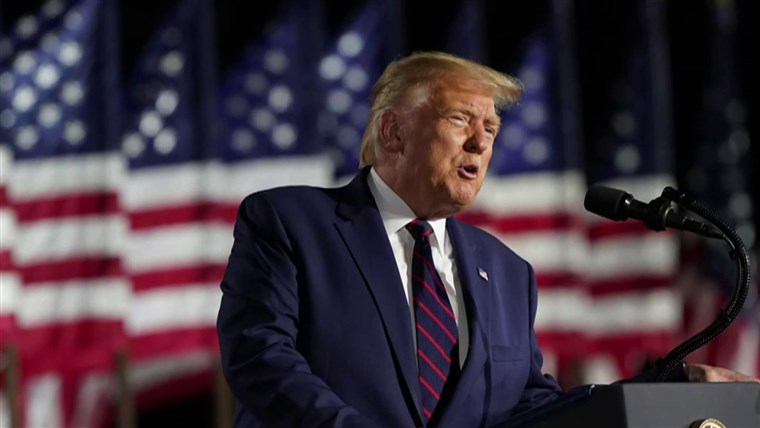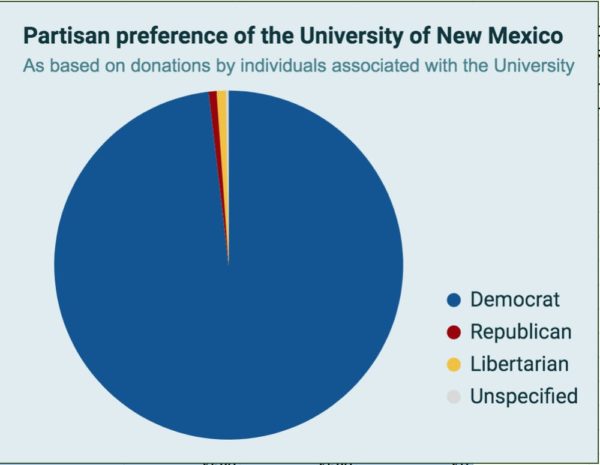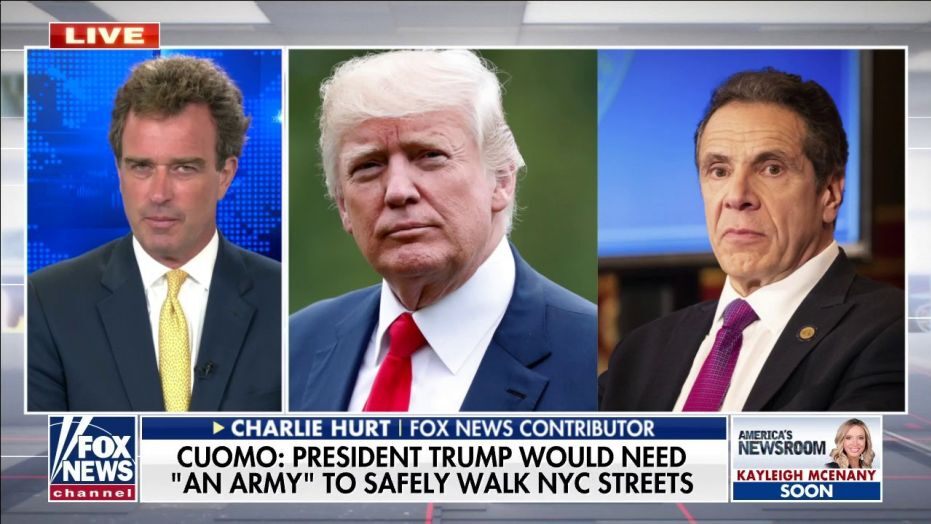WASHINGTON — By the most common measure, Democratic nominee Joe Biden’s campaign fundraising operation has grown into a juggernaut that left President Donald Trump’s version in the dust. But it’s the wrong yardstick.
While Biden is flooding the airwaves with ads after nearly doubling Trump with a record-setting $364 million haul in August — the month of the two party conventions — the former vice president is really running a smaller operation in an asymmetrical fight.
That’s largely because Trump has tapped the resources of the federal government to support his re-election bid in a systematic and comprehensive fashion.
In other words, Trump’s U.S. Treasury is bigger than Biden’s campaign war chest.
All presidents seeking a second term use the trappings of their office to promote their campaigns, but Trump stands out for the degree to which he has created symbiosis between the White House and his political operation.
He tapped his most influential White House aide, son-in-law Jared Kushner, to oversee the campaign from the West Wing, making it impossible to tell where one outfit starts and the other ends. And last month, he turned the Rose Garden and the White House South Lawn into stages during the Republican National Convention.
“More than some presidents, Trump is willing to use this power for political purposes, without guardrails,” Julian Zelizer, a presidential historian and Princeton University professor, said. “That was the lesson of impeachment and it will continue to play out.”
The House impeached Trump last year after he withheld almost $400 million in aid for Ukraine’s national defense while he pressured that country to announce an investigation into Biden.
Earlier this year, the White House coronavirus task force purchased billions of dollars of goods and services, and distributed and withheld emergency aid, in part on the basis of political considerations, according to sources who spoke to NBC News at the time.
The Health and Human Services Department recently opened bidding for a $250 million public relations contract to “defeat despair and inspire hope” about the coronavirus pandemic. The list of ways in which federal agency missions have been contorted to back Trump’s political ends is virtually limitless.
Like presidents before him, Trump often boasts about federal cash support for voters. On the campaign trail in Michigan last week, for example, he pointed to assistance given in the wake of a flood in the state this year.
“We’re providing more than $43 million in federal funds to help homeowners, businesses and communities in central Michigan to recover from that catastrophe,” he said.
What’s different for Trump is that the pandemic has given him more money to dole out in a single year than most presidents had budgeted in their entire terms in office. This fiscal year, the federal government is on pace to lay out $6.6 trillion — 49 percent more than in fiscal 2019 — and Trump has found ways to create bonus political benefits for himself with the taxpayer dollars, starting with the move to put his name on $290 billion in stimulus checks sent out to Americans during the height of the crisis.
He has often spoken about his concern for small businesses, and cited the $500 billion-plus Paycheck Protection Program loans backed by the federal government as one of his successes, but seldom mentions Congress’ role in its development or the small businesses that were forced to close when they couldn’t access funds.
Trump also uses federal policy to try to create leverage with voters: he deferred payroll taxes for federal workers, including members of the armed forces, and promised that he would unilaterally forgive them if he is re-elected — even though such action is generally understood to require an act of Congress.
So, while Biden is bringing in a lot of bucks — and Republicans are right to worry that the president’s totals might reflect donor apathy — Trump has demonstrated he is willing and able to use tax dollars to fund his campaign in ways that make monthly fundraising reports look like pocket change.
“That doesn’t mean he wins,” Zelizer said. “But it must be part of the calculation when we compare what the two candidates have at their disposal.”

 Jonathan Allen
Jonathan Allen
